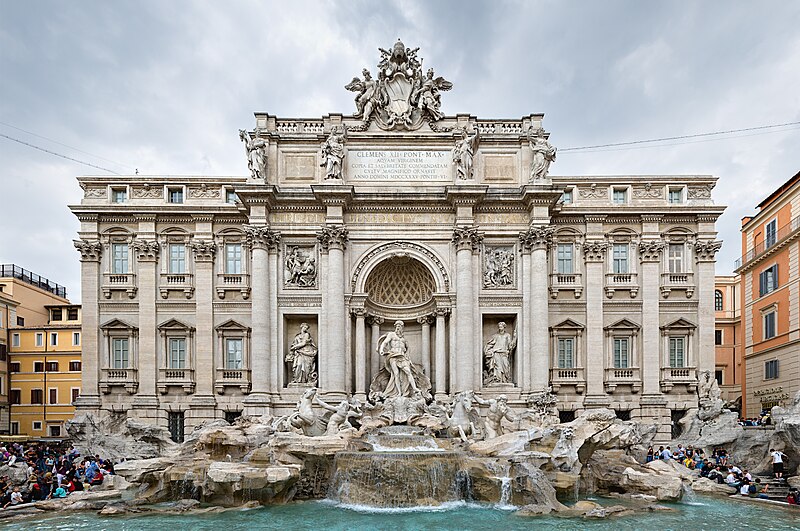 |
| Trevi Fountain |
Rome is a fascinating city; historically, archeologically, artistically and architecturally. What is the big deal about fountains? Well, they are a symbol of Ancient Rome's power and ingenuity, and Respighi was inspired to write music that celebrated four of the these fountains during different times. See if you can determine how Respighi conveys the beauty of each scene through his use of orchestration, tempo, dynamic, melody and harmony. Why do you think he chose these four fountains?
Four Sections:
I. "La fontana di Valle Giulia all'alba"
(The Fountain of Valle Giulia at Dawn)
II. "La fontana del Tritone al mattino"
(The Triton Fountain in the Morning)
III. "La fontana di Trevi al meriggio"
(The Trevi Fountain at noon)
IV. "La fontana di Villa Medici al tramonto"
(The Villa Medici Fountain at Sunset)
Video of still photo slideshow with complete music
List of Fountains in Rome
Directory of Fountains
360 Degree View of Trevi Fountain
Further connections and directions to explore:
Roman History
Public Art
Hydrology
The Medicis
Civil Engineering
City Planning
Check out this guy's blog. He tried to find each of the fountains (and pine trees) mentioned in Respighi's music.
ReplyDeletehttp://dagfooyo.com/blog/?p=389
For a sequel to Fountains or Rome, Respighi composed "Pines of Rome" in 1924. At the end of the third movement, he wanted to portray the sound of the Nightengale bird call, but he didn't think any instruments imitated it well enough, so he requests that a recording of a nightengale be played for performances.
ReplyDelete